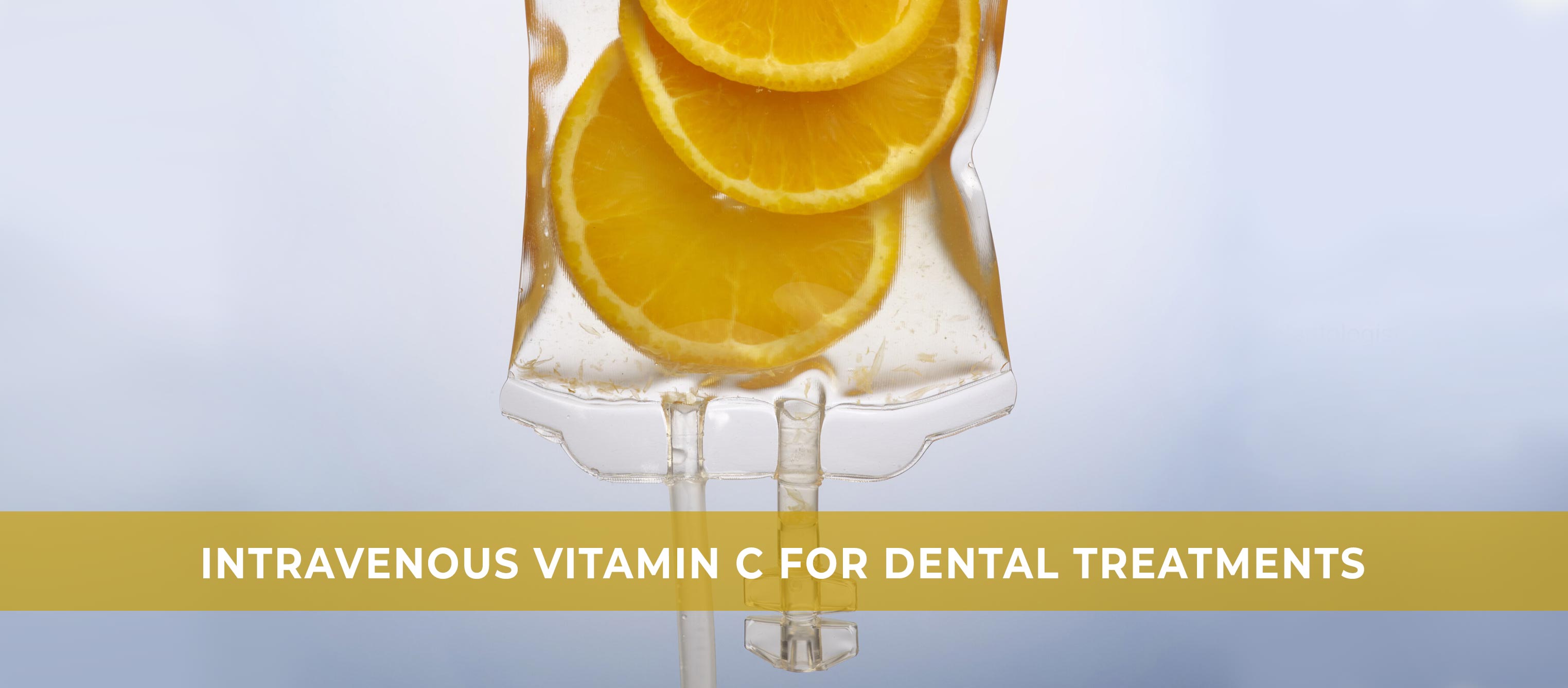
Orange juice has long been used as a homeopathic cocktail to boost the immune system and fight illness, but what if we were to boost the body with 120 times the amount of vitamin C found in a glass of juice? Intravenous Vitamin C (IV-C) has been studied extensively and has been found to have a surprisingly wide range of positive effects on the immune system, especially of those individuals undergoing medical procedures.
First, what is IV-C therapy? In order to increase absorption rates far beyond what could be achieved with oral supplementation, your dentist can deliver a dose from 10g up to 60g of vitamin C directly into your veins before the procedure; during the procedure to residual decrease bodily fatigue; and also after the dental procedure to decrease recovery time. Post-procedure IV-C is done in the office and can be completed in less than an hour, making it easy to fit in around a busy schedule.
According to Linda Golden, DDS, of Golden Dental Wellness Center in Manhasset, Long Island, “IV-C before, during and after your procedure helps improve the immune system and have better end-of-treatment results. It also aids in the removal of mercury-based fillings, as well as during placement of implants, extractions and dental procedures in general. For our patients, we use an individualized treatment, dependent on the procedure being performed. This helps boost immunity, combat pain and speed healing time.” Golden is in the process of implementing this procedure in her New York office, and currently refers patients to a doctor who specializes in IV-C therapy when necessary. She has treated patients with vitamin C in both Costa Rica and Switzerland, and her next trip is in March.
IV-C has been clinically tested repeatedly and has yielded some astounding results, from being used as a tool to repair the immune system during cancer treatment to fighting pain during and following dental procedures[1][2]. For those patients with old mercury-based implants, an IV-C can help chelate (loosen the bonds) residual mercury from the bonding site as well as act as a heavy-metal detoxification agent during removal[3]. Golden Dental Wellness Center is proud to be a mercury free office and will never use mercury in fillings! According to one study, an IV-C can also provide rapid recovery for patients experiencing painful dry socket after a tooth extraction, or even prevent it if administered during extraction[4].
For patients worried about managing their pain or gum sensitivity and inflammation during a procedure, an IV-C might be the perfect solution. Studies have shown an IV-C can decrease chronic or acute inflammation almost completely; in fact, after two rounds of treatment, many patients had no inflammatory cells at all and healthier gums overall[5]. This improvement can decrease or eliminate bleeding during procedures, redness and swelling[6]! If you think you may benefit from a IV-C during your next visit, please call Golden Dental Wellness Center for a consultation.
Very few side effects have been found as a result of IV-Cs, but it is important to tell your dentist if you are diabetic, as the procedure has been found to generate false positives post-procedure as “The electrochemical strip [used in reading blood sugar] cannot distinguish between ascorbic acid and glucose at high levels.”[7]
Golden Dental Wellness Center is located at 444 Community Dr, Manhasset, Long Island, New York. For more information, call 516-627-8400 or visit GoldenSmile.com.













 Website Powered by Sesame 24-7™
Website Powered by Sesame 24-7™